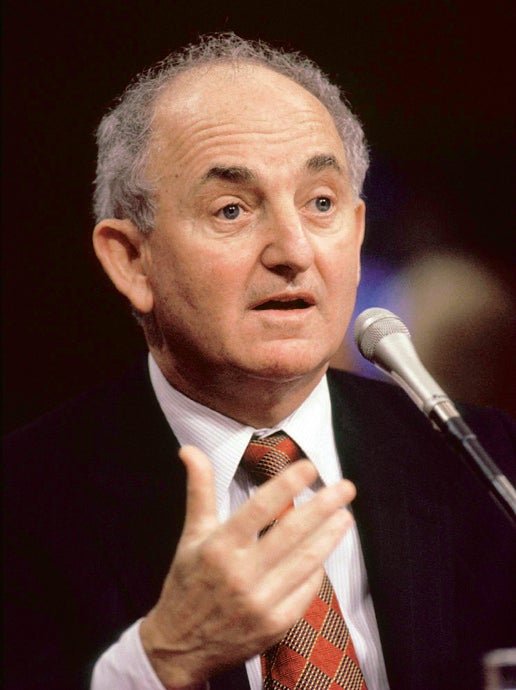Almost exactly 10 years ago, Bernard Nussbaum ’61 began his job as Bill Clinton’s White House counsel. It is not an anniversary he would likely celebrate. For he resigned after only 14 months in the position, forced out over allegations of improper conduct with officials investigating the president. Ten years later, however, Nussbaum still thinks about his time in the White House and vigorously defends the actions that led to his departure.
Like Gonzales, Nussbaum practiced corporate law before becoming counsel, serving as a partner in the litigation department of Wachtell, Lipton, Rosen & Katz in New York City, where he has since returned. In 1974, he worked with Hillary Clinton on the House Judiciary Committee’s impeachment inquiry against Richard Nixon, and he also supported her husband’s bid for the presidency in 1992. He had 30 years’ experience in private practice and government when he became counsel. But nothing can quite prepare you for the constant glare of the White House, he says.
Nussbaum found that out quickly. He faced criticism when the White House improperly requested hundreds of FBI background reports, and for preventing officials from searching the office of Deputy White House Counsel Vince Foster immediately after Foster committed suicide. He also met with officials investigating the Clintons’ involvement with Madison Guaranty, a failed savings and loan. Critics charged that he advocated for the president to the detriment of the presidency. It was a “controversy generated by those who do not understand, nor wish to understand, the role and obligations of a lawyer,” he wrote in his resignation letter. What ultimately led to his departure, he says, was his adamant opposition to the appointment of an independent counsel to investigate Whitewater. (Gonzales does not have to contend with the possibility of an independent counsel investigating the current president: Congress did not renew the statute authorizing its use.) President Clinton did not follow his advice. But stopping a politically motivated investigation is part of the counsel’s role, according to Nussbaum.
“Whether to have an independent counsel didn’t just affect the president personally, it affects him in his official capacity,” he said. “It affects his ability to function in a proper manner as president. So I never had any doubts about who I was representing: I was representing the president in his official capacity. I was dealing with issues which affected him in his official capacity. So this notion that I was really thinking about the president personally, and I was not thinking of the office–you don’t represent an office or a building, you represent a person in that office, and a person acting in his official capacity in that office.”
The independent counsel eventually learned of the Monica Lewinsky affair, which led to Clinton’s impeachment. Nussbaum, the first of six counsels during the eight years of the Clinton administration, says history has borne out that his advice was right.
